Fieldwork
This listing expired on May 31, 2022. Please contact lauritsen@klassarch.uni-kiel.de for any updated information.
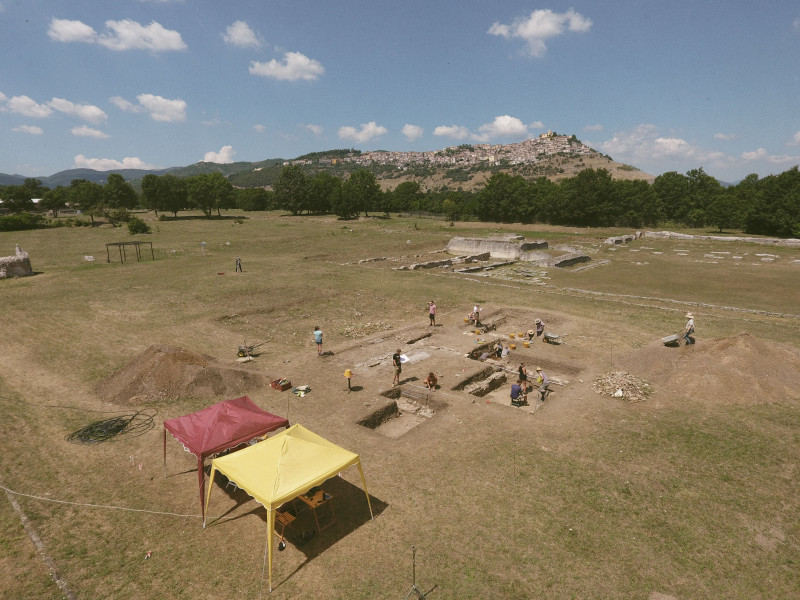
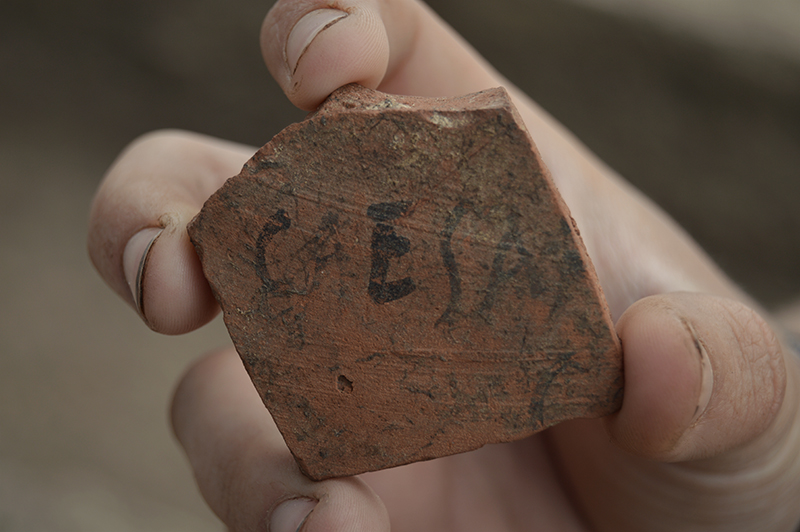
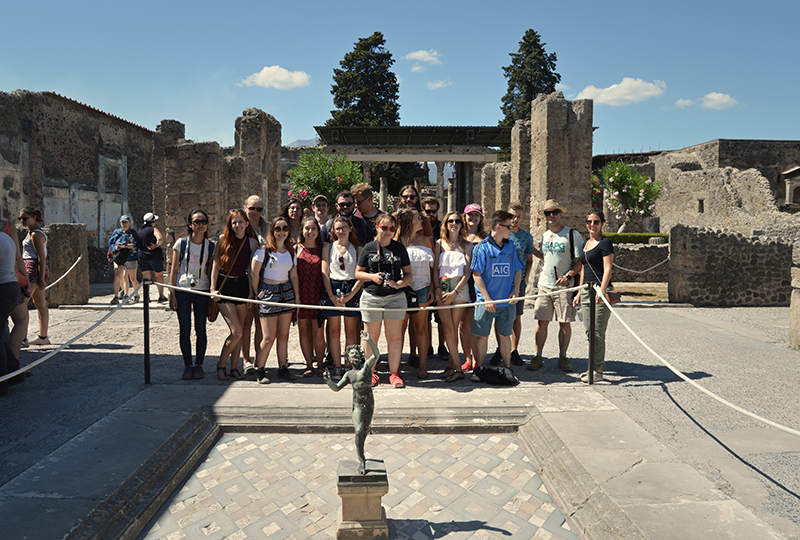
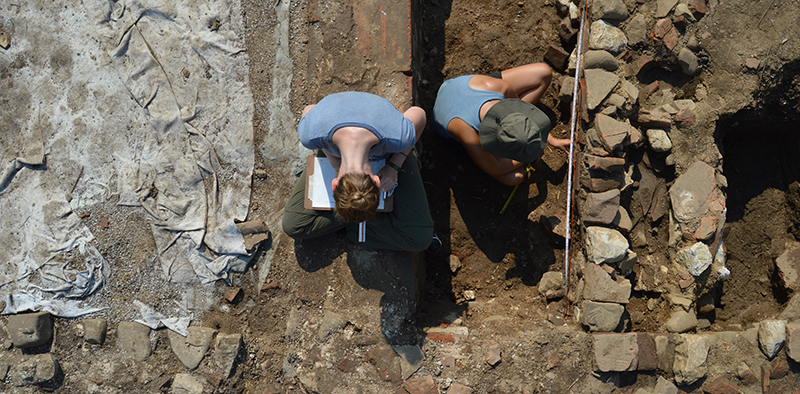
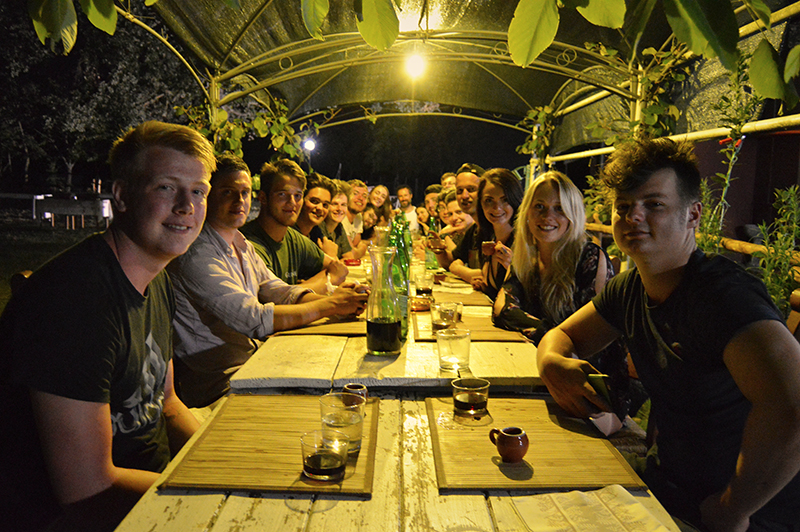
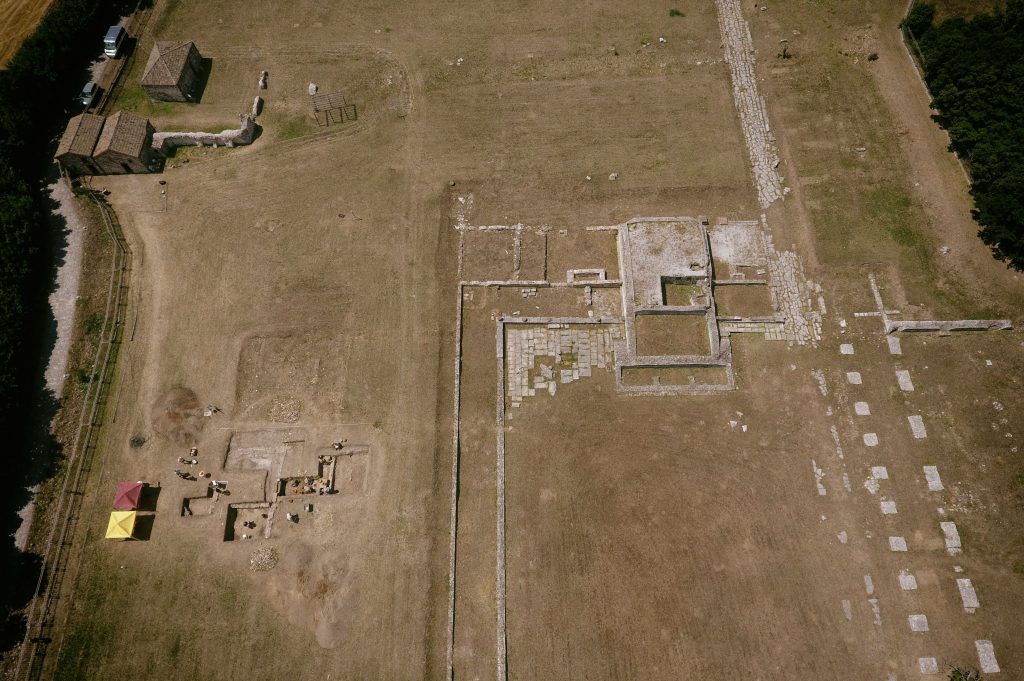
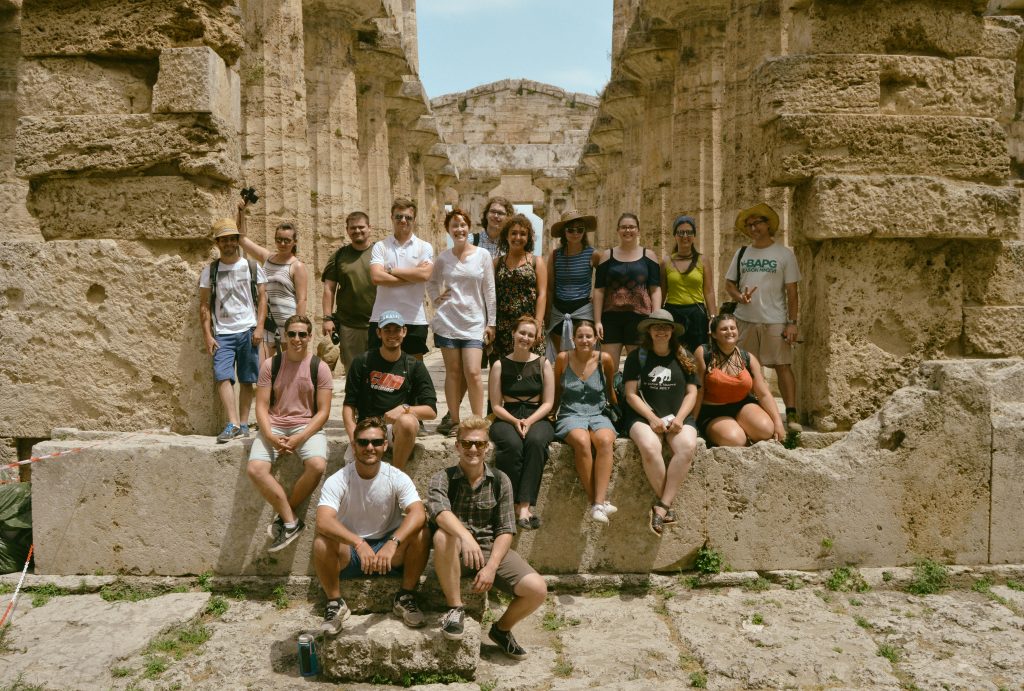
Location: Grumento Nova, IT
Season: July 9, 2022 to July 30, 2022
Application Deadline: April 15, 2022
Deadline Type: Rolling
Website: http://www.bapg.co.uk
Program Type:
Field School
RPA Certified:
No
Affiliation:
Christian-Albrechts-Universität zu Kiel; Cardiff University
Project Director:
Dr. Taylor Lauritsen (Christian-Albrechts-Universität zu Kiel); Dr. Massimo Betello (John Cabot University)
Project Description:
***No longer accepting applications for the 2022 field season***
Grumentum is a Roman town situated on the right bank of the River Agri in western Basilicata. It was established as a sparsely-populated Lucanian settlement c. 550 BC, but increasingly came under Rome’s influence over the following centuries. Finally, in the 50s BC, Grumentum was besieged and conquered by the Romans and refounded as a colonia. This event heralded a new age of prosperity, with building activity and redevelopment occurring across the site.
Between 2005 and 2014, excavations in the forum and vicinity were conducted by the University of Verona. Three temples, the town’s basilica, comitium and curia were discovered, as well as the full extent of the forum porticus and piazza. In 2014, the British Archaeological Project at Grumentum (BAPG) was established to augment the University of Verona’s investigations, excavating a series of trenches positioned to the southeast of the forum. Over the course of the last six seasons, we have identified a large building complex, consisting of a wide portico flanked by a colonnade to the west and a series of tabernae (shops) to the east. Despite its proximity to the forum, the area seems to have had a distinctly mercantile character—in addition to the tabernae, we have found evidence indicating that glass production and metalworking also occurred nearby. The primary aims for the 2022 season are (1) to explore the interiors of the shops in more detail (in the hope of identifying the types of activities that took place therein) and (2) to open a new trench near the north end of the forum, in an effort to determine the full scope of this commercial/industrial complex.
What You’ll Learn:
Participation in the BAPG offers the opportunity to learn the fundamentals of Mediterranean field archaeology, including excavation and recording techniques (identifying stratigraphic layers and deposits, drawing sections and plans, etc.), artefact processing and survey methods, as well as a range of digital skills. Our project is an entirely paperless operation: we use iPads in conjunction with a live database to catalogue data in the field, and employ aerial photography, photogrammetry, GIS and other technologies to record our excavations as they proceed. Although we still teach students traditional approaches to documenting the archaeological record, we also seek to provide them with the skills necessary to conduct fieldwork in the 21st century.
Work Schedule:
A typical work day starts at 8:00 AM and finishes around 5:30 PM. We take a short break at 11:00 and a long lunch starting at 1:00. On weekends, we work Saturday mornings and finish around 1:00; students usually go to the pool, play football (soccer) or hang out in local bars during the afternoon. On Sundays, we organise visits to archaeological sites and museums located throughout southern Italy, including Pompeii and Herculaneum, Paestum and Metapontum. On at least one Sunday, we include a trip to the beach.
Transport:
Grumentum is in a fairly remote location in western Basilicata, and the easiest way to reach the site is by SITA bus directly from Rome. Consequently, we will depart as a group from Roma Tiburtina Bus Station at 15:00 on Saturday, July 9th, reaching Grumentum by around 19:30. The return trip to the capital on Saturday, July 30th should see us reach Tiburtina by noon.
Fees:
The tuition fee for the 2022 season is £1150/€1350/$1500. This covers the costs of all transportation in Italy, lodging and meals (except Sunday lunch and dinner). Participants are responsible for arranging their own travel to/from Rome. Naturally, should the season be cancelled due to COVID, tuition fees will be refunded in full.
N.B.: All participants in the field school must be fully vaccinated, including all boosters made available to the public prior to the start of the 2022 season. Depending on circumstances surrounding COVID at the time, it may be necessary to conduct a biweekly testing programme throughout the campaign.
For further information about the BAPG, or to submit an application, please visit our website at www.bapg.co.uk.
Period(s) of Occupation: Roman Republic; Roman Imperial period; Late Antiquity
Notes:
Roman town; Field school in southern Italy; Roman excavation; Roman shops
Project Size: 1-24 participants
Minimum Length of Stay for Volunteers: Full project
Minimum Age: 18
Experience Required: None
Room and Board Arrangements:
Participants are housed in a primary school situated in the centre of Grumento Nova, a town located about 5 kilometres from the excavations. The school is positioned near the main church, Chiesa Madre di Sant'Antonio, with fantastic views over the Val d'Agri. Students sleep in male and female dorms, with showers, a kitchen and laundry facilities present onsite (sheets, pillows and pillowcases are not provided). A post office, pharmacy and ATM are located in close proximity, as are Grumento Nova's two main bars. The project provides breakfast, lunch and dinner 6 days a week (Monday—Saturday). Italian style breakfast is served at the school and we eat lunch, which typically consists of sandwiches, fruit and biscuits, on site. In the evenings, three-course dinners are prepared at the school by our excellent cook, Teresa de Stefano (vegetarian options available). We also occasionally have weekend meals at one of the local restaurants or the town's pizzeria.
Dr. Taylor Lauritsen
Johanna-Mestorf-Str. 5, R. 5b
Kiel
24118
Germany
lauritsen@klassarch.uni-kiel.de
Phone: 44.771.458.1817
The AIA is North America's largest and oldest nonprofit organization dedicated to archaeology. The Institute advances awareness, education, fieldwork, preservation, publication, and research of archaeological sites and cultural heritage throughout the world. Your contribution makes a difference.
Notifications